Iranian armed forces threaten ‘decisive’ action amid regional tensions
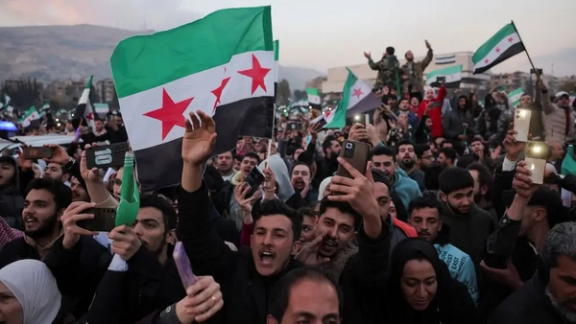
Iran’s armed forces have threatened a forceful response to any aggression on the country.

Iran’s armed forces have threatened a forceful response to any aggression on the country.
“The powerful Armed Forces of Iran, with full strength and complete readiness, are always prepared to deliver a decisive and crushing response to any threat,” said the General Staff of the Armed Forces in a statement on Saturday.
The recent overthrow of Syrian President Bashar al-Assad has dealt a significant blow to Iran's influence in the Middle East.
As a key ally and conduit for Iranian support to groups like Hezbollah, Assad's government was central to Iran's proxies. His fall disrupts these alliances and supply routes, diminishing Iran's regional leverage.
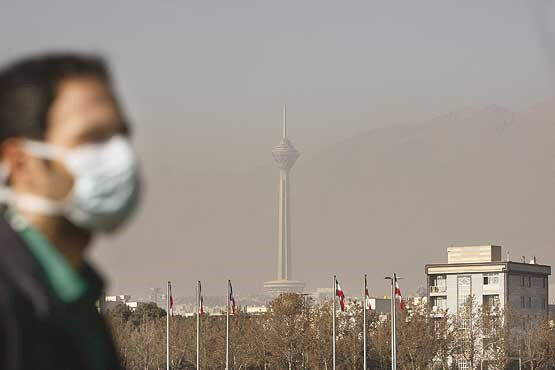
Air pollution caused more than 40,000 deaths in Iran last year, Deputy Health Minister Alireza Raisi revealed, marking a sharp rise of 10 to 12 percent compared to previous years.
“The majority of these deaths were due to cardiovascular diseases, strokes, respiratory issues, and cancers,” Raisi said in a Saturday interview.
He described the growing toll as a public health crisis, urging immediate action to improve air quality.
Air pollution in Iran has become a critical public health concern, particularly in major cities like Tehran, Ahvaz, and Isfahan. It is driven by factors such as high levels of vehicle emissions, industrial activities, reliance on low-quality fuel, and natural phenomena like dust storms.
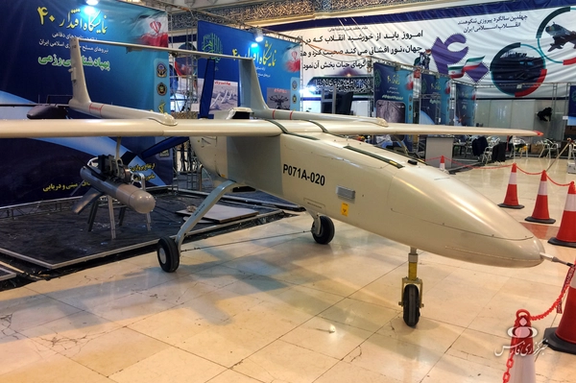
A former engineer for a semiconductor company, Mahdi Sadeghi, pleaded not guilty in federal court on Friday to charges of illegally procuring US technology for an Iranian company linked to a drone attack that killed three US service members in January.
Sadeghi was indicted on December 19, along with the arrest of Mohammad Abedini in Milan, Italy, who was also involved in illegal military technology transfers to Iran.
Sadeghi, a dual US-Iranian citizen, was charged with violating US export control and sanctions laws. His arrest on December 16 led to his dismissal from Analog Devices, where he had worked since 2019. Prosecutors allege that Sadeghi used his position to facilitate the procurement of US-origin electronic components for San’at Danesh Rahpooyan Aflak Co, an Iranian navigation systems manufacturer headed by Mohammad Abedini.
On Friday, news emerged that an Italian reporter, Cecelia Sala, 29, was detained in Iran on the same day when the news about Sadeghi and Abedini became public. In the past, Iran has detained foreigners in similar cases to later exchange them with its agents arrested in the West.
According to prosecutors, Abedini's company supplied navigation systems to Iran’s Islamic Revolutionary Guard Corps for use in military drones. One such drone was reportedly involved in an attack on Tower 22, a US outpost near the Syrian border in Jordan, which killed three Army Reserve soldiers and injured 47 others.
The White House attributed the attack to the Islamic Resistance in Iraq, a coalition of Iran-backed militant groups. Iran, however, has denied involvement, with its foreign ministry calling the arrests of Sadeghi and Abedini a violation of international law.
Court filings reveal that Sadeghi traveled to Iran in 2016 seeking funding for a startup. Through an affiliated company, he allegedly began procuring U.S. technology for Abedini’s firm. Prosecutors claim that, after joining Analog Devices, Sadeghi helped Abedini’s Swiss front company secure contracts with the Massachusetts-based firm, allowing Abedini to access sensitive technology.
The components procured were reportedly used in the navigation system of the drone involved in the attack.
Sadeghi has remained in custody since his arrest. A hearing is scheduled for January 2 to determine potential bail conditions as discussions between the defense and prosecutors continue.
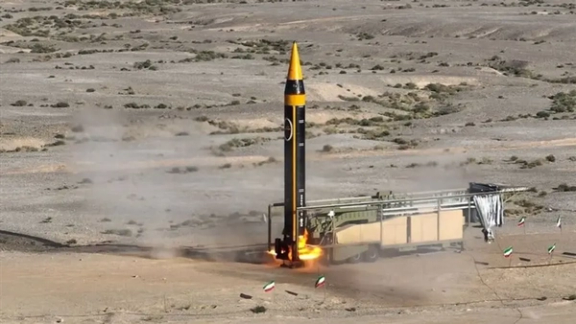
Iran announced surprise military drills on Saturday to showcase its continued strength after the Israeli blows to its defense systems as well as the loss of Syria to rebels marked one of the Islamic Republic's biggest military setbacks yet.
"You will see that our power has not diminished, contrary to what the enemy claims in its psychological warfare, but has actually increased," Iranian media quoted Iran's Defense Minister, Brigadier General Aziz Nassirzadeh as saying.
"Today, some deliberately and others inadvertently present analyses suggesting the weakening of resistance," he added.
"I believe these individuals fail to grasp the essence of resistance, which is an ideology," Nassirzadeh added, referring to the strength of Iran's allied groups in the region despite the setbacks.
In October 26 retaliatory strikes again Iran, Israel took out nearly all of Iran’s air defense system, according to Western officials including the UK's Chief of Defense Staff.
Israel has decimated Hamas infrastructure in Gaza, assassinated many of its leaders, including Ismail Haniyeh and Yahya Sinwar, and targeted Hezbollah’s commanders after killing successive leaders of the Lebanese group.
Notwithstanding, Iranian officials including the country's ultimate military decision maker, Supreme Leader Ayatollah Ali Khamenei, described the conflict as a victory.
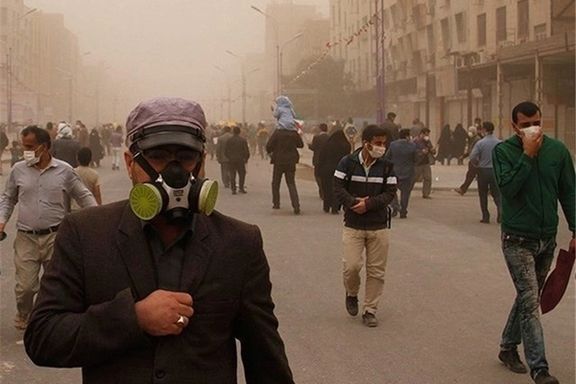
Iranian government politicians and clerics scrambled on Friday to counter mounting public disdain for their international and domestic setbacks, reaching for outlandish explanations and blasting critics.
President Masoud Pezeshkian announced in a meeting on Friday that the worst is over in electricity and gas shortages which have plagued the country for over a month.
“Forecasts indicated that the state of the network could have been much worse than it is today," Pezeshkian reassured the public, saying the power grid was now stable
But ordinary Iranians routinely plunged in the dark have seen no improvement.
Yet another power plant near the capital stopped producing electricity on Friday due to shortage of diesel fuel, which has largely replaced dwindling natural gas supplies during the high demand cold season.
Gas production, Iranian media reported is down by up to a third even as Iran holds the world’s second largest reserves. Diesel supplies too are limited.
Iran’s largest natural gas reserves are in the Persian Gulf, in a field shared with Qatar which is a successful producer.
However, the natural pressure of the gas field has been declining in the last four years and Iran does not have the necessary technology to adequately tap its economic crown jewel.
Western technology and financial sanctions in place and lack of money for investment make it unlikely that they ever will.
At the same time, the Iranian currency stood at a historic low against major currencies, with the US dollar trading well-above 800,000 rials late on Friday. The battered currency has lost one-third of its value since early September.
Since the ouster of its lifelong ally in Syria’s Assad dynasty earlier this month, the Islamic Republic has found itself on the backfoot not only at the domestic front with the energy crisis, but also in foreign policy.
Several politicians and high-level officials on Friday either tried to sound the alarm or blame internal and external enemies for the existing state of affairs.
“Today is a day for national unity and cohesion. Enemies have surrounded us from all sides, yet we fear nothing, for this is the trait of God's supporters," Chairman of the Expediency Council Ayatollah Sadeq Amoli Larijani said in a public gathering.
"Wise strategy and divine virtue dictate that we preserve divine values. Let us avoid words that lead to division.”
Mohammad-Hossein Safavi, a Friday Prayer Imam in northern Iran, lashed out at Jews and Israel as the root cause of the Islamic Republic's troubles.
“According to God's words in the Quran, the Jews are the most hostile beings and exert all their efforts to infiltrate Islamic societies,” he told his congregation.
Opponents of the Islamic Republic on social media are trying to divine when it will fall, similar to Bashar al-Assad in Syria.
Some give it just weeks, while others say it will not survive until the end of 2025. Their dire domestic situation and regional defeats are not lost on officials and clerics, who try to show strength or blame enemies.
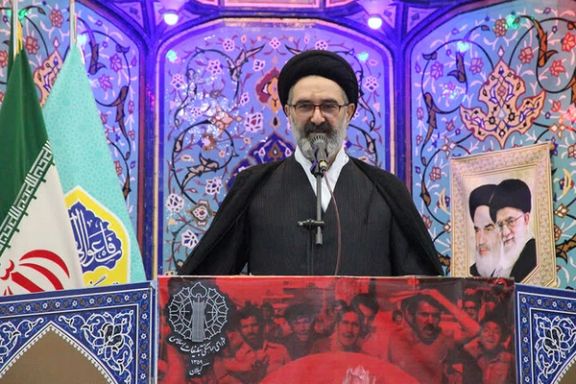
A state-appointed Iranian cleric lashed out against Jews in an antisemitic outburst on Friday.
"The greatest dangers and harms today come from the Jews," said Khamenei's representative in Azad University of Gilan, Mohammad Hossein Safavi, during a Friday prayer sermon in Rasht.
"According to God's words in Quran, the Jews are the most hostile beings, and they have made every effort to infiltrate Islamic society," said Safavi who is also the interim Friday prayers imam of Rasht in northern Iran.